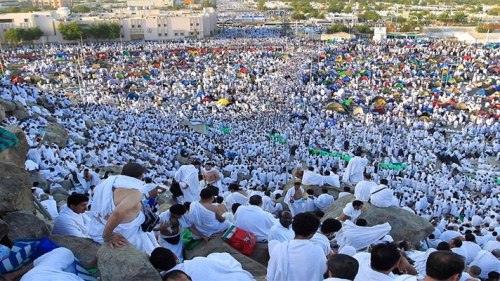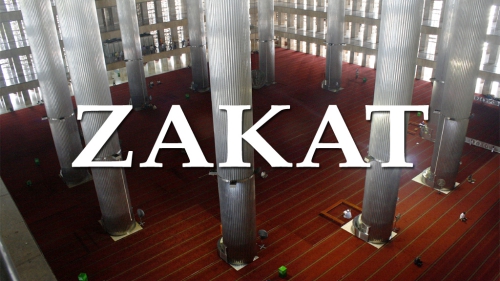FASTING (SAWM/TSOM) AS A SPIRITUAL DIET

The Arabic word for fasting (Sawm) has a two-fold meaning as described in Qur’an and Hadith. The primary meaning of sawm is to hold back, to refrain, to abstain – the deeper mystical meaning is to rise beyond, to move past former limits. The Hebrew word for fasting Tsom has a similar double meaning.
So sawm/tsom (fasting) fulfills its two meanings; restrain or abstain, pertains to the restraint engendered by the fast; to rise beyond pertains to the self-improvement results God bestows upon those who fast with sincerity and knowledge. Thus, a fast is both a holding back and a lifting up. The body-mind and it’s appetites are self-disciplined, and through this self-discipline; a subtle but profound spiritual awakening begins and grows.
By observing our religious duties of sawm/tsom humans are provided the means by which to alter our personal reality, in order to shape what we ourselves can become. By holding back the body-mind, the soul-mind attains moments of self-perception, and spirit awakens and begins to unfold itself. And our generation really needs these life saving activities.
Almost one third of all the Americans who will die this year, will die due to their own behavior. Smoking, over-eating and drinking, and physical inactivity will do them in. The lack of self-restraint so evident in much of modern life leads us first to pleasure seeking, and then increasingly to self-induced suffering.
Millions of people spend billions of dollars on pills, diet books and gym memberships but still lack the self-discipline to control themselves. And in America young people are leading the way in increasing self-indulgence. In the majority of states (30 out of 50) the percentage of overweight or obese children is at or above 30%. We have largely lost the spiritual value of self-restraint that is so important in the Christian, Hindu, Jewish and Muslim tradition. That self-restraint was practiced every year by voluntary community fasting.
Why should people restrict their culinary pleasures? More outrageous, why should we afflict ourselves by fasting? Don't most people think that being happy is the most important thing? Isn't eating one of the most accessible pleasures we have? Why should religions restrict our pleasures? Why should the Torah decree a day of fasting? (Leviticus 16:29, 23:27).
For twenty-four hours on Yom Kippur, Jews (in good health) are supposed to afflict their souls by abstaining from eating or drinking anything; because what we do not eat may be even more important than what we do eat. All animals eat, but only humans choose to not eat some foods that are both nutritious and tasty. Some people do not eat meat for religious/ethical reasons.
Hindus do not eat beef and Jews and Muslims do not eat pork for religious/spiritual reasons. And on Yom Kippur - the Day of Atonement, Jews do not eat or drink anything at all for twenty-four hours. Every year for the entire the month of Ramadan, Muslims fast from first light until sundown, abstaining from food, drink, and marital relations.
The Qur'an (2:183) says "Oh you who believe! Fasting is prescribed to you as it was prescribed to those before you, that you may (learn) self-restraint." What self-restraint discipline Hinduism, Islam and Judaism trying to teach us by decreeing the importance of communal fasting? What spiritual benefits occur when we fast?
First of all, fasting teaches compassion. It is easy to talk about the world's problem of hunger. We can feel sorry that millions of people go to bed hungry each day. But not until one can actually feel it in one's own body is the impact truly there. Compassion based on empathy is much stronger and more consistent than compassion based on pity. This feeling must lead to action. Fasting is never an end in itself; that's why it has so many different outcomes.
But all the other outcomes are of no real moral value if compassion is not enlarged and extended through fasting. As the prophet Isaiah said, "The truth is that at the same time you fast, you pursue your own interests and oppress your workers. Your fasting makes you violent, and you quarrel and fight. The kind of fasting I want is this: remove the chains of oppression and the yoke of injustice, and let the oppressed go free. Share your food with the hungry and open your homes to the homeless poor" (Isaiah 58:3-7)
This is why feeding the hungry and giving charity are so important during Yom Kippur and Ramadan. As Anas related: “The Prophet was asked, ‘Which type of charity is best?’ He responded, ‘Charity done during Ramadan.’ ” (Tirmidhi, #663)
Charity (Sadaqah in Arabic, Tsadakah in Hebrew) is very important in Islam and Judaism; and even more so during Ramadan and Yom Kippur. Sadaqah/Tsadakah is voluntary charity is given above and beyond what is required from the obligation of the Biblical tithe and the Qur’anic zakāt.
Second, fasting is an exercise in will-power. Most people think they can't fast because it's too hard. But actually the discomfort of hunger pangs is relatively minor. A headache, muscle pains from too much exercise, and most certainly a toothache, are all more severe than the pains hunger produces. I have on occasion fasted for three days, and found that after the first twenty four hours the pain decreases slightly as the stomach becomes numb.
The reason it is so hard to fast is because it so easy to stop. The food is all around, and in easy reach; all you have do is take a bite. Thus the key to fasting is the will power to decide again and again not to eat.
Our society has increasingly become one of self indulgence. We lack self discipline. Fasting goes in direct opposition to our increasing "softness" in life. When people exercise their will-power and fast, they are affirming their self-control and celebrating mastery over themselves. We need continually to prove that we can do it, because we are aware of our frequent failures to be self-disciplined.
The third outcome of fasting is a positive struggle against our dependencies. We live in a consumer society. We are constantly bombarded by advertising telling us that we must have this or that to be healthy, happy, popular or wise. By fasting we assert that we need not be totally dependent on external things, even such essentials as food. If our most basic need for food and drink can be suspended for twenty-four hours, how much more our needs for all the non-essentials.
In our overheated consumer society it is necessary periodically to turn off the constant pressure to consume, and to remind ourselves forcibly that "Man does not live by bread alone." (Deuteronomy 8:3)
The Hebrew word for observing a fast is tsom (sawm in Arabic0. Its root is the same as the Hebrew verb Tsimtsum, the process of withdrawal and concentration that Kabbalah teaches God underwent in creating the universe. Fasting is a miniature personal example of Tsimtsum that enables us to understand the fundamental spiritual law: ‘less is more’; and ‘self-restraint is freedom’.
Fourth, fasting serves as a penance. Though self inflicted pain may alleviate some guilt, it is much better to reduce one's guilt by offsetting acts of righteousness to others. This is why, for Jews, contributing to charity is an important part of Yom Kippur. The same is true for Muslims during Ramadan. Indeed, fasting that doesn't increase compassion is ignored by God. Also, the concept of fasting as penance helps us understand that our suffering can be beneficial. Contemporary culture desires happiness above all else. Any suffering is seen as unnecessary and indeed evil.
Though we occasionally hear people echo values from the past that suffering can help one grow, or that an existence unalloyed with pain would lack certain qualities of greatness, many today seem to think that the primary goal in life is " to always be happy and free of all discomfort." The satisfaction one derives from the self-induced pain of fasting provides insight into a better way of reacting to the externally caused suffering we have to experience anyway.
Taking a pill is not always the best way to alleviate pain especially if by doing so we allay the symptoms without reaching the root cause.
The fifth outcome of fasting for Jews is the performance of a mitzvah (a Jewish responsibility), which is, after all, the one fundamental reason for fasting on Yom Kippur. We do not do mitzvoth in order to benefit ourselves, but because our duty to God as Jews requires that we do them. Fasting is a very personal mitzvah, with primarily personal consequences. Fasting on Yom Kippur is a personal offering to the God of Israel from each member of the family of Israel.
For over 120 generations Jews have fasted on this day. A personal act of fasting is part of the Jewish people's covenant with God. The principal reason to fast is to fulfill a mitzvah. The outcome of your fast can be one or more forms of self-fulfillment. But simply knowing that you have done one of your duties as an adult Jew is the most basic and primary outcome of all.
Rabbi Maller's web site is: www.rabbimaller.com
Topics: Fasting (Sawm), Ramadan Values: Contentment, Spirituality
Views: 2470
Related Suggestions

















